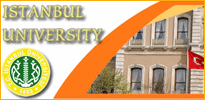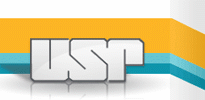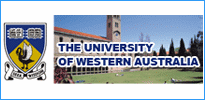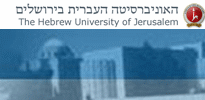Cameroon: Cameroon Education Profile
2012/02/27
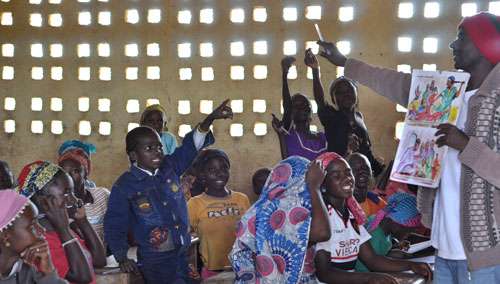 The third Cameroon household survey was conducted in 2007 and its findings published in 2009. The results show that the proportion of the population living below the national poverty line changed hardly at all between 2001 (40.2%) and 2007 (39.9%). The data on food poverty indicate that the proportion of children aged under five suffering from hunger fell from 22.2% in 1998 to 19.3% in 2006. These percentages are far above the Millennium Development Goal (MDG) targets for 2015, respectively 25.1% and 8%.
The third Cameroon household survey was conducted in 2007 and its findings published in 2009. The results show that the proportion of the population living below the national poverty line changed hardly at all between 2001 (40.2%) and 2007 (39.9%). The data on food poverty indicate that the proportion of children aged under five suffering from hunger fell from 22.2% in 1998 to 19.3% in 2006. These percentages are far above the Millennium Development Goal (MDG) targets for 2015, respectively 25.1% and 8%.
From 2001 to 2007, the net primary enrolment rate increased by only 0.3 percentage points, because education provision increased only slightly and little was done to stimulate demand (under-enrolment of girls persists in Extrême-Nord and Adamaoua provinces). The literacy rate among 15- to 24-year-olds was stable, rising only from 82.3% to 83.1% over the period. Although these two indicators have hardly changed in six years, they remain close to the MDG target for 2015 (100%). The gross enrolment rate rose from 102% to 105%, while the primary completion rate increased from 51% in 2008 to 58% in 2009.
The status of women has improved considerably, notably in primary education, where the gender ratio improved from 0.83 to 0.89 between 2001 and 2007. In 2009, this ratio is estimated at 0.9. At the secondary level, the gender ratio improved from 0.83 in 2008 to 0.85 in 2009. The ratio of female to male literacy in the 15-24 age group remained stable at about 0.88. In short, Cameroon has the potential to achieve the target ratio of 1 for these indicators.
In higher education, the University of Maroua, founded in 2008, admitted more than 7 000 students in its Ecole normale supérieure in January 2009. The Institut supérieur du Sahel, another school within this university, will admit its first intake of students in 2010, following a competitive entrance examination. The country’s other universities have enhanced their offerings by opening new tertiary institutions such as the fine-arts institute (Institut des beaux-arts) in Foumban and the fisheries institute (Institut halieutique) at Yabassi and by establishing new tertiary tracks such as the second-stage programme at the Ecole normale supérieure in Bambili.
In a sign of changing gender attitudes, the rate of salaried female employment in the non-agricultural sector increased from 20.3% in 2005 to 21.4% in 2007. Remarkably, there were six women cabinet ministers in 2009, and 13.9% of the current members of parliament are women.
Cameroon is known for having one of the best educational systems in Africa. Primary school is both free of charge and obligatory. Statistics say that 70% of all children in ages between 6-12 years go to school. The adult literacy rate is 67.9%.In the southern areas of the country almost all children of primary-school age are enrolled in classes. However, in the north, which has always been the most isolated part of Cameroon, registration is low. Most students in Cameroon do not go beyond the primary grades. There has been an increasing trend of the smartest students leaving the country in recent years to study abroad and end up settling there, the so-called "brain drain".
Two separate systems of education were used in Cameroon after independence. East Cameroon's system was based on the French model, West Cameroon's on the British model. The two systems were merged by 1976. Christian mission schools have been an important part of the educational system. The country has institutions for teacher training and technical education. At the top of the educational structure is the University of Yaoundé. There is, however, a growing trend for the wealthiest and best-educated students to leave the country in order to study and live abroad, creating a brain drain.
The academic year in Cameroon runs from September to June, at which time, end of year examinations are always written.The General Certificate of Education(GCE)both Ordinary and Advanced levels are the two most qualifying exams in the Anglophone part of Cameroon.[2] Students who graduate from a five year secondary school program have to sit for the General Certificate of Education Ordinary Level,and those who graduate from a two year high school program have to sit for the General Certificate of Education Advanced Level.So far, the GCE advanced level and the Baccalaureate ( the French Equivalent of academic attainment)are the two main entrance qualifications into Cameroon's institutions of higher learning.
Although Cameroon boast of a sprawling cache of junior academic institutions, its well of higher institutions however, is rather scanty. Until date there are barely six state run universities in (Buea,Douala,Yaounde,Dschang and Ngaoundere) and only a handful of thriving private universities like the Catholic University of Science and Technology (BUST) and the Fotso Victor University in the west province.
The University of Buea is the only Anglo-Saxon style university in Cameroon, and the rest of Cameroon's five state managed universities are run on the francophonie model.Cameroon's universities are strictly managed by the central government, with the Pro-chancellors and Rectors of these universities adamantly appointed by presidential decree.The minister of higher Education is the Chancellor of Cameroon's state universities.
In all, Cameroon's higher education has been a success since independence, with thousands of its graduates mostly consumed by the public service in Cameroon.Nonetheless, an merging number of private higher technical institutions of learnng like the Nacho university, Fonab Polythenic, and many others are beginning to reshape the predominantly general education style of education that for over three decades has been the turf of most anglophone students in Cameroon
Universities in Cameroon include:
* Bamenda University of Science & Technology
* University of Buea
* University of Douala
* University of Dschang
* University of Ngaoundere
* University of Yaounde (two campuses)
* Yaounde Catholic University
* The International Relations Institute of Cameroon - IRIC (yaounde)
* St. Thomas Aquinas Regional Major Seminary (Bambui)
* Siantou and Ndi Samba Schools of Higher Learning (Yaounde)
* Highlands University (P)
Medical school
- Cameroon News
-
- BOTSWANA: South Africa plays an active role in the AU
- BOTSWANA: Africa: How to Adapt to Beat Crippling Droughts
- BOTSWANA: Africa: Expanded Engagement for Caterpillar - Boosting Sales & Alleviating Poverty
- BOTSWANA: WHO Africa Health Forum App Leads the Way
- BOTSWANA: Africa: 'Market Information Gap Threatens U.S.$400 Billion Intra-Africa Trade'
- BOTSWANA: Africa: Crafting an African Victory for the World
- Trending Articles
-
- ITALY: Italy's Current Account Surplus Increases In May
- EUROPEAN UNION: Draghi Urges Patience And Persistence On Inflation
- ARGENTINA: ARGENTINA: Country Reaches Deal To Export Lemons To Mexico
- EUROPEAN UNION: ECB Keeps Markets Guessing On Tapering
- EUROPEAN UNION: Eurozone Consumer Confidence Unexpectedly Falls In July
- SOUTH AFRICA: South Africa CB Unexpectedly Trims Interest Rate By 25 Bps





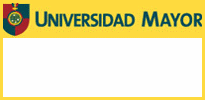
.gif?1356023993)

